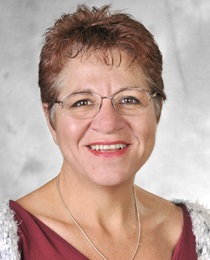As Lifespan Corp.’s Center for Bariatric Surgery marks its 10th anniversary, Kellie Armstrong, a registered nurse at the center, is celebrating the 17th anniversary of her own gastric bypass surgery.
In June, Armstrong, who helps care for patients who have just undergone the procedure, was also named 2022’s Distinguished Certified Bariatric Nurse by the American Society of Bariatric and Metabolic Surgery. In addition to her work at the center, Armstrong heads up wellness groups and race training groups at Lifespan as part of her resolve to help others lead a healthy lifestyle.
Armstrong discusses the work done at the bariatric center and the changes she made in her life after undergoing surgery.
PBN: What does the Center for Bariatric Surgery at The Miriam Hospital do?
ARMSTRONG: The Center for Bariatric Surgery is a comprehensive program at The Miriam Hospital. Credentialed in adult and adolescent bariatric surgery and obesity medicine, we provide surgical procedures as tools to help treat the disease of obesity. We offer preoperative work up to support and educate patients, continue this process postoperatively by offering long-term follow-up in medical treatment, and offer access through our many relationships with other nonsurgical weight loss programs.
PBN: How long have you been a bariatric nurse, and what made you start working in the field?
ARMSTRONG: As a Rhode Island Hospital staff nurse in 2000, I saw my first bariatric surgery patient and a need for staff and patient education. I served as a bariatric educator, and in 2007 was among the first RNs, the only [one] in R.I., to obtain the Certified Bariatric Nurse certificate. In 2010 I took on the newly created bariatric coordinator position at Rhode Island Hospital. In 2012, Lifespan’s two bariatric surgery programs merged to form the Center for Bariatric Surgery at The Miriam Hospital. We’ve had over 3,500 patients go through our program. We mark our 10th anniversary this year.
PBN: Who are the best candidates for bariatric surgery?
ARMSTRONG: The best candidates understand bariatric surgery is not a cure for the chronic disease of obesity but a tool, together with other tools and lifestyle changes, to help achieve a healthy lifestyle and weight and help resolve obesity-related health conditions.
PBN: What do you hear from patients who have had the procedure about long-term maintenance and satisfaction?
ARMSTRONG: Patients are mostly grateful to retain or acquire “health” and enjoy life. Non-scale victories include crossing legs [when] seated, bending to tie shoes, flying on an airplane or driving a car without a seatbelt extender, playing with children or dancing with partners, fitting in a public bathroom stall or buying clothing off the rack.
PBN: Did you take up long-distance running for the first time after getting your own bariatric surgery in 2005?
ARMSTRONG: In 2008 I was walking my dog when she slipped her leash in a high-traffic area. As I chased her, I realized I was not “dying” after passing a few telephone poles. I then started training. I’d add a few telephone poles a week. That April I ran my first 5K. Then my first marathon. In time, my first triathlon, half-iron distance triathlon and Ironman triathlon. Since 2008, I’ve completed more than 250 events. I’m winning the battle with my disease of obesity every day.
Elizabeth Graham is a PBN contributing writer.












